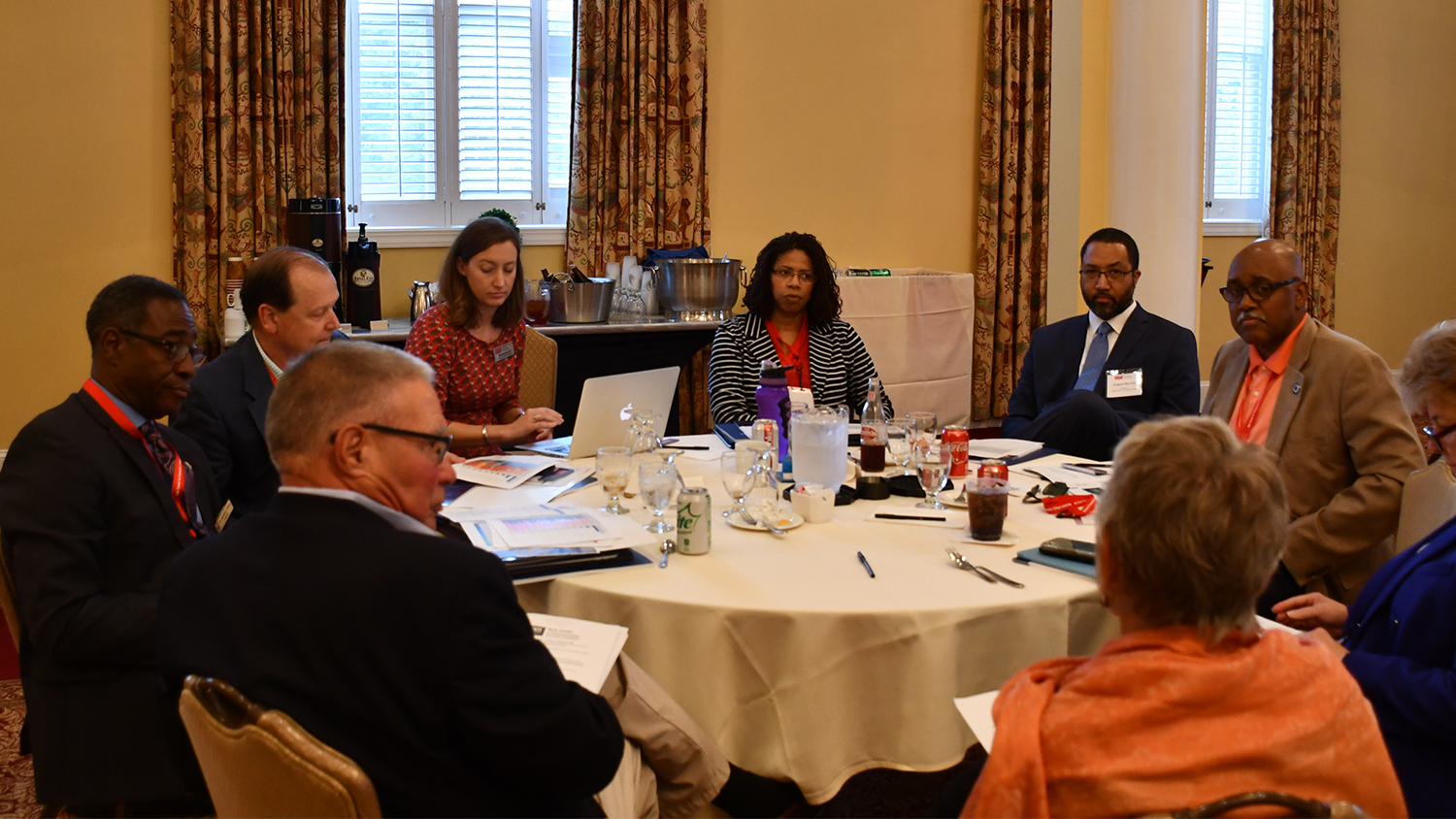Belk Center Symposium Helps Community College Leaders Examine Data to Improve Credential Attainment, Labor Market Outcomes

Community College leaders are developing questions about how academic programs can best serve their communities after taking a deep dive into data at the second Presidents’ Academy event hosted by the NC State College of Education’s Belk Center for Community College Leadership and Research.*
A two-day symposium, “Presidential Strategies for Increasing Credential Attainment and Labor Market Outcomes,” was held Sept. 9 and 10 in response to requests from community college presidents to take an in-depth look at regional and college-specific data following the Belk Center Presidents’ Academy event in May.
“For my college, we’re in a very rural setting and money is even tighter than it is in an urban setting, so to have this opportunity is something I would not have had otherwise,” said Bladen Community College President Amanda Lee. “It’s truly bringing me into an environment and into a conversation that I could not have had with my own resources.”
Through presentations and candid conversations in breakout sessions, community college presidents explored data related to enrollment, campus programs and labor market outcomes for students to determine where they are succeeding and where change may be necessary.
“This isn’t about finding the right answers, but it’s about finding the right questions,” Karen Stout, president and CEO of Achieving the Dream, said during the event’s first presentation. “We ask you to think about some data that will, I think, compel you to think differently about the programs you offer and the ways that you deliver the programs.”
The goal of the event was to give community college leaders an opportunity to examine how graduates perform in the labor market and determine if they are producing enough students to meet employer demands. In addition, data was provided to help them understand the state of the labor market in their regions and assess how programs align with employer needs so they can develop an intentional action plan that ensures students earn high-quality credentials.
Community colleges will face a delicate balance, Stout said, between eliminating programs that do not lead to jobs that allow graduates to earn a living wage and maintaining programs that offer credentials for jobs that are historically low-wage but provide a vital service to the community, like childcare.
“This will help us to really understand how data is used and allow us to ask the questions that we want answered when it comes to developing services and programs for our communities,” Pitt Community College President Lawrence Rouse said. “I think this is going to be a great help to us and give us some additional tools in our toolbox.”
Understanding how to best serve students is crucial as the state hopes to meet a goal set by myFutureNC — a statewide commission focused on educational attainment that includes former state legislators and other leaders from education, business, philanthropy and nonprofit organizations — to have two million adults in North Carolina hold post-secondary degrees or credentials by 2030 to ensure the state’s economic well-being.
Mary Rittling, a professor of the practice at the NC State College of Education, said that high school graduation rates are improving in the state and across the nation, but the rate of high school graduates enrolling in college has not seen a similar increase. This is problematic, as two-thirds of all jobs in North Carolina currently require more than a high school diploma, and that number is expected to grow.
“College is a pathway for our students, it is not a destination. It is not the end, it is just the beginning,” Rittling said. “We have to start thinking about lifelong learning in a different way on our campuses and the role that we play in that lifelong learning continuum.”
*The Belk Center is currently in the planning stage. It is in compliance with NC State’s Policy on Centers and Institutes.
- Categories:


